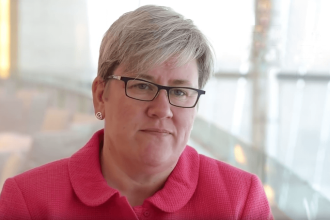Genetically modified (GM) wheat, purported to be drought tolerant, is set to be grown in field trials in South Africa during 2025 and 2026, at three locations in the Western Cape (near Moorreesburg, Protem, and Swellendam) and one in the Northern Cape (near Hopetown), following an application for field trials by Trigall Genetics in August 2024.
This application follows the approval by the South African biosafety authorities, the Executive Council: GMO Act (EC), in August 2022, for the same GM wheat to be imported into SA as food, feed, and industrial processing (commodity approval) from Argentina, despite the absence of food safety evidence, including feeding studies.
“Where such contamination occurs in foodstuff containing GM wheat that is less than 5% – this being the threshold for labelling in South Africa – South Africans will not know they are consuming GM wheat and will be unable to avoid purchasing or consuming products containing the GM wheat. Similarly, contamination of wheat in South Africa will find its way into exports to several African countries, including Botswana, Zimbabwe, Lesotho, Zambia, and Namibia, where the GM wheat has not been approved”, said Mariam Mayet, Director of the ACB.
Trigall is owned by Bioceres, which in turn has 73 institutional shareholders, including individual investors, mutual funds, hedge funds, and institutions. After these trials, a commercial permit will be applied for in 2027, when GM wheat will proliferate throughout the South African food system.
The ACB, supported by 86 organisations from Africa and around the world, resisted the approval through the submission of an application for review of decision, on the basis that GM wheat poses unacceptable risks to human and animal health as well as undermining food sovereignty and nutrition security in South Africa. Such resistance fell on deaf ears.
To date, no shipment of GM wheat has yet been imported into South Africa from Argentina, where it is being commercially cultivated. Nevertheless, approval for field trials will absolve Trigall (Bioceres) from any liability or redress that may arise from contamination of the food supply from the field trials.
This is worrying, as Trigall is proposing an isolation distance of five metres, and a monitoring plan of a period of one year, which are woefully inadequate to prevent pollen-mediated gene flow. This is particularly pertinent considering contamination has been a feature in previous GM wheat trials in the US, where contamination events were detected up to eight to 15 years after trials.
Wheat is South Africa’s most important grain crop after maize, widely cultivated across three regions of the country, and is critical for ensuring food sovereignty and nutrition security. South Africa is both a wheat importer and an exporter. Wheat is a major source of carbohydrates for millions of South Africans in the form of starch, with its seeds also providing an important source of protein. It is used ubiquitously in everyday food (including staple foods), such as bread, noodles/pasta, couscous, cakes, muffins, biscuits, snack foods, puddings, and sauces in confectionery.
On Thursday 26 September, the ACB submitted objections to the application for field trials, as we found it to be fatally flawed, and thus it should be rejected. The application fails to address potential avenues of risk to the environment and human health, relying on outdated science and various assumptions that allow for risks to be dismissed without empirical testing. Curiously, the field trial application relating to the unintended introduced transgenes, and the molecular characterisation information provided in the field trial application, is contradicted by the application for commodity import, raising concerns regarding the veracity of claims in the current application.
We have also raised fundamental questions regarding the functioning of the so-called drought-tolerant trait, HB4, especially if the introduced transgene is not altering the expression of other genes to alter abiotic stress tolerance. The ACB has a long track record of resisting bogus claims of drought-tolerance by Monsanto (now Bayer), which has culminated in protracted legal action in the South African courts.
According to Mayet, “Plant breeding and seed systems discourses are increasingly becoming dominated by the deafening hype generated regarding genetic editing, high-throughput technologies, and digital agriculture. Yet, more than a decade has passed since the global rollout of CRISPR-Cas protocols and tools, with no commercial end-products being produced either for consumers, on supermarket shelves, or for farmers in the fields. At best, the few that have made it to the market have either disappeared much faster than it took to develop them or have occupied marginal niche markets, while real-time transgenic crop plants, based on antiquated technology, such as GM wheat, are given free biosafety passes.”




